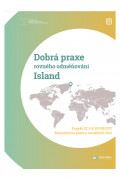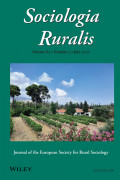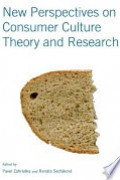Christianity has lost its salience, but customs and traditions maintained their importance in forming national identity in Europe. Using the ISSP National Identity 2003 and 2013 data from 17 European countries, this article tests how the salience of Christianity and sharing of national customs and traditions varies according to the share of Muslim and immigrant population, and whether the association changed across time.
Topic: identity, kultura, religion and religiosity
This article reports on a new empirical study evaluating crime concentration at places in a postsocialist city. We use principles of the law of crime concentration at places and the Cambridge Crime Harm Index to measure crime count and crime harm concentration at the level of street segments. The research found differences between crime concentration in a post-socialist city and crime concentration reported by recent studies from US or UK cities.
Topic: trust/social cohesion, crime, urban and rural studies, social inequalities, public administration
Topic: history of sociology
The purpose of this document is to provide inputs and contribute to reflection for decision-making in the field of equality in employment between men and women.
Topic: economics, gender
Topic: gender, wages and incomes
Drawing upon ethnographic research on human living and producing with fungi, and Haraway’s theorization of sympoiesis and the model ecosystems of mycorrhizae developed in current mycological research, we offer a concept of sympoietic growth.
Topic: economics, sociology of science, životní prostředí
The upswing in finance in recent decades has led to rising inequality, but do downswings in finance lead to a symmetric decline in inequality? We analyze the asymmetry of the effect of ups and downs in finance, and the effect of increased capital requirements and the bonus cap on national earnings inequality. We use administrative employer–employee-linked data from 1990 to 2019 for 12 countries and data from bank reports, from 2009 to 2017 in 13 European countries.
Topic: economics, elites, gender, wages and incomes, social inequalities
Genderově podmíněné násilí včetně sexuálního obtěžování jsou závažnými problémy, ke kterým dochází i ve vysokoškolském prostředí. Genderově podmíněné násilí má vážné dopady na studijní a pracovní výsledky osob, které jej zažívají, ale i na osoby, které jsou tomuto jednání vystavovány z pozice svědků.
Topic: gender, social inequalities, sociology of science, education
The article addresses the influence of parenthood on the gender pay gap (GPG). The linked employer − employee data available that is suitable for a detailed GPG analysis, does not include parenthood in Czechia. It is thus possible to examine the relationship between the GPG and parenthood via this data only indirectly through the use of data on age.
Topic: gender, wages and incomes, care, work, parenting, social inequalities
Working for low pay may have substantial negative consequences at both the individual and societal level. This article adds to scarce research on low pay in Czechia, employing pooled longitudinal EU-SILC data for 2004 – 2017. It analyses patterns of low-wage employment and estimates the degree of low-pay persistence in terms of genuine state dependence in low-wage employment, accounting for both observed and unobserved heterogeneity among workers and endogeneity in the initial conditions.
Topic: economics, wages and incomes, work
Female spiritual influencers on Instagram engage with conspiracy content and appeal to the issue of control over female bodies to bridge the gap between mainstream and fringe online spaces. I use the concept of “third space” to analyse the dynamics of Instagram communities around spiritual influencers and highlight how these communities operate as spaces for political discussion while simultaneously appearing apolitical from the outside.
Topic: gender, media, health, lifestyle
While alternative food networks (AFNs) have become the leading conceptualisation of sustainable food systems, vibrant scholarship on food self-provisioning (FSP) in Central and Eastern Europe has remained confined to the geopolitical region it investigates. This article brings these two bodies of thought closer together in two steps.
Topic: klimatická změna, consumption, životní prostředí
This chapter introduces different explanations for high rates of growing and sharing food outside the market system in the Czech Republic based in social anthropological research. The authors have extended that work with their own qualitative and quantitative research over a period of six years in the Czech Republic, and here present findings that confirm the contribution that food self-provisioning is making to both the social and ecological sustainability.
Topic: klimatická změna, consumption, životní prostředí
Topic: EU, historical sociology, politics (and political attitudes)
Most stratification research concerns solely the economically active population and omits inactive seniors. Retirees are often treated as a separate and rather homogeneous social category. However, this approach is only partially valid. Retirees can still be differentiated in regard to their objective and subjective well-being, which is linked to their former occupations.
Topic: social inequalities, age and ageing, standard of living
Kapitola srovnává, jak se spokojenost s různými aspekty života liší v různých typech venkovského prostoru a ve městě. Z analýzy vycházející z dat z dotazníkového šetření uskutečněného v roce 2016 zaměřeného na periferní oblasti vyplývá, že lidé žijící v periferiích jsou s různými aspekty svého bydliště spokojeni méně než lidé ve městě a v jiných, rozvinutějších venkovských lokalitách.
Topic: urban and rural studies, regions, social inequalities
Kapitola je kvalitativní studií prekérní práce v periferních regionech a strategií, jež na trhu práce uplatňují lidé žijící v periferiích, kteří obtížně nacházejí pracovní uplatnění. Z analýzy rozhovorů vyplývá, že omezená nabídka pracovních příležitostí v regionu a zejména obtížná dosažitelnost práce snižují možnosti výběru práce a omezují volby variant pro lidi žijící v periferních oblastech.
Topic: work, regions, social inequalities
2022, Alena KřížkováProdlužující se pracovní dráhy, digitalizace, propouštění a gender v peněžnictví
Topic: gender, wages and incomes, work, social inequalities, age and ageing
The article presents an innovative method of evaluating public transport accessibility. The evaluation is based on a simulation of the usability of public transport in real everyday situations. It measures the amount of time the residents of local communities need when they use public transport to reach various commonly used destinations at a specified time. The method’s main advantage is that it aims at reflecting everyday use of public transport.
Topic: urban and rural studies, regions
This editorial seeks to define fragile pronatalism by highlighting why pronatalism in the examined Central and Eastern European post‐socialist countries should be considered fragile. Moreover, it aims to map desirable future changes in fertility policies in the region. Following a brief presentation of the articles contained in this thematic issue, our concluding thoughts complete this editorial.
Topic: gender, parenting









Newsletter
Facebook
X
Tweets by SociologickyNewsletter